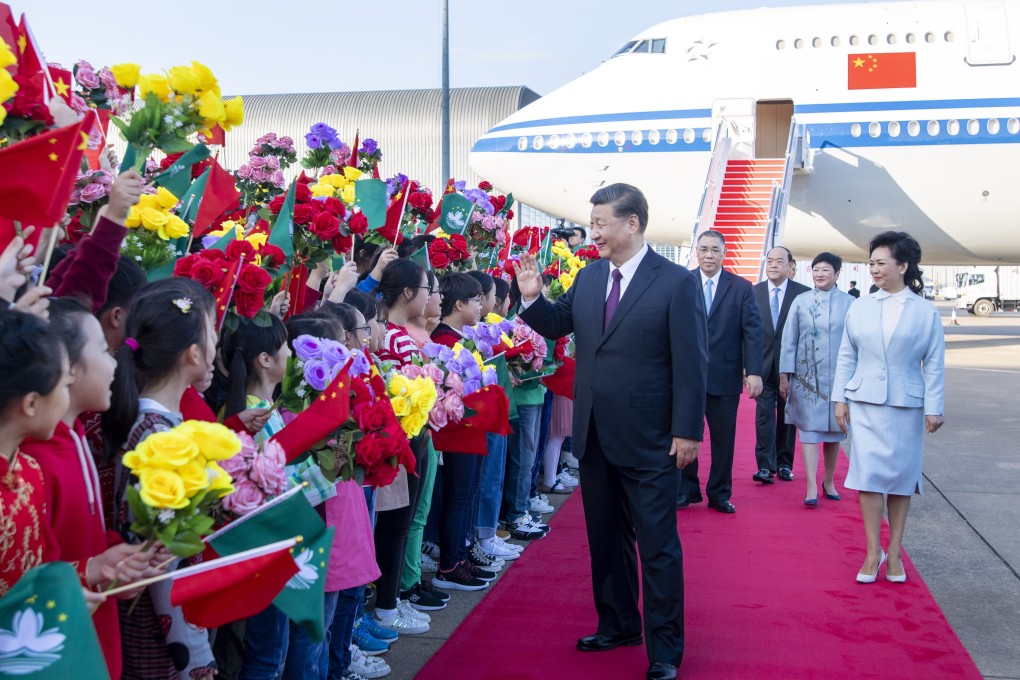Advertisement
Macau’s yuan remittance limit raised to same level as Hong Kong as Beijing starts to shift financial focus
- China increased Macau’s daily yuan remittance quota for residents of the casino hub to 80,000 yuan (US$11,400) from 50,000 yuan (US$7,100)
- The policy was announced on Wednesday to mark the 20th anniversary of Macau’s return to Chinese rule as President Xi Jinping visited the city for a three-day trip
Reading Time:2 minutes
Why you can trust SCMP

China has increased the daily limit of yuan remittance from Macau to the same level as Hong Kong, a move that suggests Beijing is keen to spread the financial risks away from the troubled city.
The policy, announced by the People's Bank of China on Wednesday to mark the 20th anniversary of Macau’s return to Chinese rule, will raise the daily limit on yuan remittance to 80,000 yuan (US$11,400) from 50,000 yuan (US$7,100).
The daily yuan remittance quota for Macau residents had been kept lower than Hong Kong as Beijing was concerned about money laundering in the casino hub.
Advertisement
But Beijing is now keen to grow Macau as an offshore yuan hub, with Hong Kong’s place as the dominant offshore yuan centre under threat due to the anti-government protests. A yuan-denominated stock exchange and a bond trading centre is reported to be in the works for Macau, according to mainland media.

“The measure is more symbolic in nature rather than being of practical use,” said Ding Wenjie, an economist at CMB International. “Macau is aiming to differentiate itself from Hong Kong in the region.”
Advertisement
Macau’s yuan base, though, is tiny compared to Hong Kong with yuan deposits in Macau totalling 39.4 billion yuan (US$5.6 billion) as of October, according to data from Monetary Authority of Macao.
Advertisement
Select Voice
Choose your listening speed
Get through articles 2x faster
1.25x
250 WPM
Slow
Average
Fast
1.25x